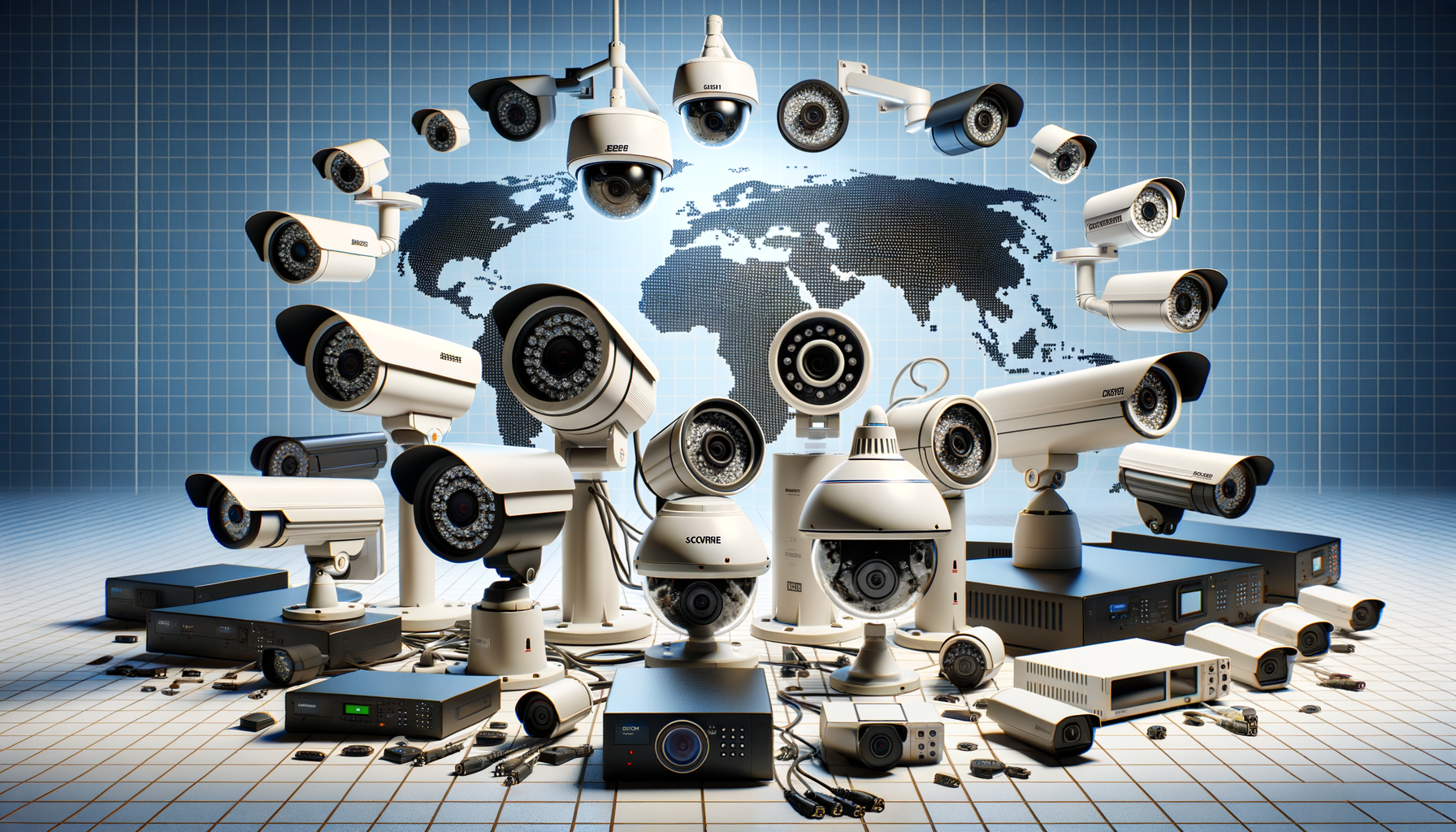
Explore Security & Surveillance Camera Options for U.S.
The Growing Importance of Security & Surveillance Cameras
As concerns about safety and security continue to rise, the demand for effective surveillance solutions has never been more pressing. Security cameras play a crucial role in deterring criminal activities and providing peace of mind to homeowners and business owners alike. In the U.S., the market for these devices is expanding rapidly, with numerous options available to suit various needs and budgets.
Security cameras serve multiple purposes beyond merely recording footage. They act as a deterrent to potential intruders, offer valuable evidence in case of incidents, and can even help in monitoring daily activities remotely. With advancements in technology, modern cameras now come equipped with features like night vision, motion detection, and remote access, making them more effective than ever.
The importance of surveillance cameras is further underscored by statistics indicating a reduction in crime rates in areas where they are prevalent. This article explores the different types of security cameras available in the U.S. market, their features, and the benefits they offer to users.
Types of Security & Surveillance Cameras
The variety of security and surveillance cameras available today can be overwhelming, but understanding the different types can help in making an informed decision. Here are some common types:
- Bullet Cameras: Known for their long, cylindrical shape, bullet cameras are ideal for outdoor use. They are often equipped with weather-resistant features and can cover long distances.
- Dome Cameras: These cameras are named for their dome-shaped housing, which makes it difficult for onlookers to determine the direction the camera is facing. They are suitable for both indoor and outdoor use.
- PTZ Cameras: PTZ stands for Pan, Tilt, and Zoom, allowing these cameras to cover a wide area and focus on specific details when necessary. They are often used in larger spaces like parking lots and malls.
- Wireless Cameras: As the name suggests, these cameras do not require cables for video transmission, making them easier to install and relocate.
- Network/IP Cameras: These cameras connect to the internet, allowing remote access and monitoring through smartphones or computers. They are popular for their convenience and advanced features.
Each type of camera offers unique advantages, and the choice largely depends on the specific security needs and the environment in which they will be used.
Key Features to Consider
When selecting a security camera, it’s important to consider the features that will best meet your surveillance needs. Here are some key features to look for:
- Resolution: Higher resolution cameras provide clearer and more detailed images, which can be crucial for identifying faces or license plates.
- Night Vision: This feature allows cameras to capture footage in low-light conditions, ensuring round-the-clock surveillance.
- Motion Detection: Cameras with motion detection can alert users to movement within their field of view, reducing the need to monitor footage continuously.
- Field of View: A wider field of view means the camera can cover more area, reducing the number of cameras needed for comprehensive coverage.
- Storage Options: Consider whether the camera offers cloud storage, local storage, or both, as this affects how footage is accessed and stored.
These features, among others, can significantly enhance the effectiveness of a security system, providing users with greater control and peace of mind.
Benefits of Installing Security Cameras
The installation of security cameras offers numerous benefits, making them a worthwhile investment for both residential and commercial properties. Here are some advantages:
- Crime Deterrence: Visible cameras can deter potential criminals from targeting a property, as they increase the risk of being caught.
- Evidence Collection: In the event of a crime, recorded footage can serve as valuable evidence for law enforcement and insurance purposes.
- Remote Monitoring: Many modern cameras allow users to monitor their property remotely, providing real-time updates and alerts.
- Peace of Mind: Knowing that a property is under surveillance can offer reassurance to homeowners and business owners, reducing anxiety about security.
- Cost Savings: By preventing theft and vandalism, security cameras can save property owners money in the long run.
These benefits highlight the importance of security cameras in safeguarding properties and enhancing overall security.
Choosing the Right Security Camera System
Selecting the right security camera system involves careful consideration of various factors, including budget, location, and specific security needs. Here are some tips to help guide the decision-making process:
- Assess Your Needs: Determine the primary purpose of the cameras, whether it’s for deterring crime, monitoring employees, or keeping an eye on children and pets.
- Consider the Environment: Choose cameras that are suitable for the environment in which they will be installed, considering factors like weather conditions and lighting.
- Set a Budget: Security cameras come in a wide range of prices, so it’s important to set a budget and find options that offer the features you need without overspending.
- Seek Professional Advice: Consulting with a security expert can provide valuable insights and recommendations tailored to your specific situation.
- Test the System: Before finalizing a purchase, test the system to ensure it meets your expectations and functions as intended.
By taking these steps, you can choose a security camera system that effectively meets your needs and provides comprehensive protection.